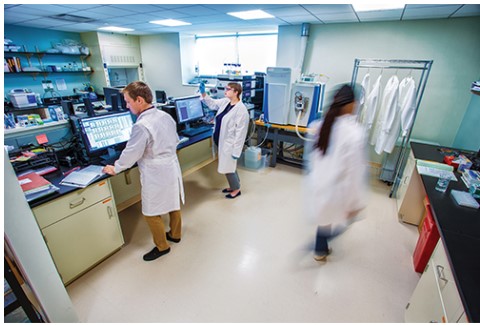
COLLABORATIVE PROJECTS
Large, multi-site collaborations aim to identify risk factors for autism spectrum disorder by following children whose older siblings have already been diagnosed with the condition.

EXPOSURE SCIENCE LAB
Through cutting edge analytical chemistry, the Exposure Science Lab works to understand, predict, and manipulate the connections between metabolism, environmental exposures, and health outcomes.

MODIFIABLE LIFESTYLE FACTORS
Current research projects investigate a range of factors such as diet during pregnancy or exposure to antimicrobial agents in soaps that may influence risk of Autism Spectrum Disorder.
FROM THE AUTISM INSTITUTE BLOG

THE ROLE MALE SEX HORMONES PLAY IN AUTISM RISK posted by: Bushraa Khatib
Males are about four times as likely as females to be diagnosed with autism, but experts still don’t know why. Researchers explored what role male sex hormones play in autism risk.

AUTISM CLUES IN PLACENTAL VEINS AND ARTERIES posted by: Bushraa Khatib
The placenta plays an all-important role in controlling the fetal environment, yet has rarely been considered in studies of neurodevelopmental disabilities, including autism - until now.

EARLY STUDY UNRAVELS SOME OF THE MYSTERIES OF AUTISM RISK posted by: Bushraa Khatib
Researchers explore the potential link between a father's genes and autism risk.


